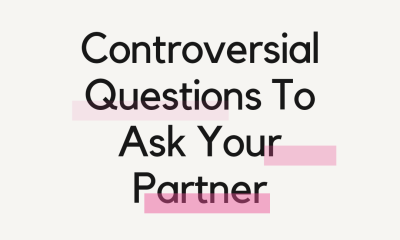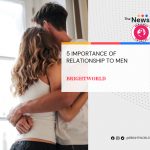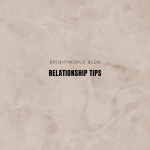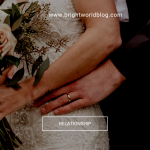Relationship
Robin Gilmore: How To Be A Good Partner

Table of Contents
ROBIN GILMORE
Robin Gilmore as a guy on my side has always wanted to solve some challenges facing or befalling those in state of RELATIONSHIP, as the situations and qualms happening around the world of partners into RELATIONSHIP has given a lot of people wrong perspective into believing that such union can never be built in a solid ground, thereby making people into the union sees each other as fake or gamers, and also giving other aspiring ones reason never to go ahead with their relationship dream.
However, as a means to solve some of this challenges and make Relationship to be seen as the stepping stone to good MARRIAGE, he tries to analyze the current reasons why people are becoming more afraid of investing or going into a relationship with anyone.
And below is some of his thoughts.
Robin Gilmore: Challenges Facing RELATIONSHIP
Actually, the problem facing Relationship in our world today is people’s inability to read, watch and understand what RELATIONSHIP is all about.
Many people who think they are up to the age of being in a relationship quickly rush in without having plans or making a proper plan for their relationship affairs or goals.
This seems to be part of the reasons the union keep crashing everyday, because people fails to identify their plans and objective before involving in any.
Secondly, social life has taken over everything people have built for with years, people now want to live as others are living which is why break up and even divorce keep rocking high every day.
But however, with below method you can get that perfect RELATIONSHIP you want and build it to your taste, even though no Relationship is perfect.
Robin Gilmore: How To Be A Good Partner
It is hundred percent possible to be a good partner as long as it doesn’t mean being a perfect partner. No one is really perfect in life not even in a relationship, so being perfect in a relationship is probably impossible, but being good or being a good partner is quite possible.
Here’s how.
* Study More About Relationship:
Don’t just jump into a relationship without reading or watch one or two books or videos relating to relationships and partner building, this will help you in finding out the “Rights” and the “wrongs” in Relationships.
It will help you grow more mentally and stay more mature to be able to handle any issue that will come up in your Relationship.
* Avoid Game Playing:
Always know the goal, purpose and objective of your Relationship, where it started and where it is heading to.
Avoid making plans that tends to cheat on your partner, the main goal of everyone in Relationship is to know each other and get marry in future, and never for any other thing.
So having any plans aside this shouldn’t be encouraged in order to stay as a good partner and enjoy your Relationship.
WHAT IS RELATIONSHIP GAME PLAY?
* Avoid Listening To Others Always:
Always read, watch and also observe from people, but do not listen to anyone all time.
This entails about living the way you want and handling your Relationship issues maturely, instead of listening to any advise from anyone.
Pay attention to advise given to you by people including your friends, think deeper about them before carrying anyone out.
* Stop Seeking For A Perfectionis:
Robin Gilmore by my side would always say, “perfection is found in heaven, and not on Earth”, though I don’t know if perfection is truly found in heaven, but I agree with him on the part that says perfection can’t be found on Earth.
One of the uncomm way of being a good partner is by stopping to seek for perfection and by stopping to act perfect.
Stop seeking for perfection from your partner, because your partner is not, this will increase your partner’s love for you for not expecting some special qualities from him or her.

Bright Tobias
Robin Gilmore: Conclusion
Building a RELATIONSHIP takes a lot from one, study and listen to those that has taken some of these battle to the end, and learn how they did it, then applied it, they may work for you also, Who knows.
Relationship
Should I Text Him Or Wait? – Love Quiz

Should I Text Him Or Wait?
The above question, “should I text him or wait” is one of the most confusing thoughts or questions that mainly those into serious relationship always ask. Like should I text him first, should I text him quiz, should I double text him and so on and so forth.
These questions are often triggered by the overwhelming and outpouring love people have for their partners. And sometimes when you have waited for a very long time to get a text or call from your partner and it seems it never gonna happen that particular period, then the thought of “Should I text him first?” Comes in.
But however, when faced with this scenario or circumstance as a lady in a serious RELATIONSHIP, what would you do?, Go ahead and text him or keep waiting for his message to come first?. Well let’s learn about who should text first and who shouldn’t text first.
Should I Text Him Or Wait? – Who Should Text First?

RELATIONSHIP as we all know is very beautiful, so as MARRIAGE too. The cost of maintaining relationships and marriages can be so cheap when you look at it from a certain level, on the other hand it could also be expensive for you.
In any union involving two individuals known as RELATIONSHIP or MARRIAGE, it is the responsibility of the both parties to join hands in making sure that the love is being maintained and nothing spoils it.
That is to say, it is the responsibility of each of them to play a crucial role to make sure that the union is maintained and sustained.
However, it has never been anyone’s responsibility to care more than the other in marriage or relationship, it has never been the responsibility of anybody to love more than the other, and also it has never been the responsibility of anyone to text first while the other person follows along.

So, as you are wondering “Should I Text Him Or Wait” or should I text him first or should I double text him, just have it in mind that it is the responsibility of you both to text each other.
In situations where he fails to text you first, you can go ahead and text him first. Who knows, he may have not texted you because he is busy with other things and doesn’t remember he has a princess somewhere waiting for his message. So go ahead and text him, go ahead and double text him, go ahead and initiate the conversation, LOVE is actually beautiful.
Should I Text Him Or Wait? – Conclusion

Sometimes the love that exists among two lovers get shadow ban the moment one starts thinking if he or she should text first or wait for the other partner to text first. Who text first doesn’t matter, as long as your message doesn’t get ignored, then hit the send button and wait for your reply.
So the question or thought of “should I text him first or should I double text him” is a thought of doubt. If you love him, then go ahead and text him. If he delay to reply, double text him till he replies. Bright Tobias says so, Lol.
Relationship
Signs You Will Never Find Love

Table of Contents
Signs You Will Never Find Love
Searching for signs you will never find love, signs you will never find love reddit or signs that you will never find love?, Say no more and Search no more as BRIGHTWORLD covers the signs that will definitely show that you will never find love in your life, no matter what happens. It’s never a curse, but signs that have proven it over the time. Now let’s dive in.
Signs You Will Never Find Love

First of all, finding love is considered as one of the best things that can happen to anyone in life, I mean true LOVE.
True love is an embodiment of peace, joy and happiness, when found. But another question one ought to ask is, is love findable?. I mean can one actually find love?, Is there anywhere love is hidden that one supposed to find it?, Well I think you never thought of that when thinking of the “Signs You Will Never Find Love“.

To get it straight, love isn’t found, but strategically built. That is you can never find love anywhere, but you can only have it by building it with your circle of friends and colleagues and partners.
Though in some cases, love can be found and gotten at any given time, but then the essence of this post is about true love.
True love isn’t findable, but you can only get it by building and investing in it.

In some cases, you can find love and build it to the height of level you desire making it a true one. So what happens when you find love and it doesn’t favour you?, What happens when you find love and it fails to be true?, What signs show that one will never find true love in his or her life?, I think it’s time to get it deeper. Here are some signs one ought to know that he or she will never find love in his or her life.
Signs You Will Never Find Love
1: Play Boy And Play Girl:
Being a play boy or play girl is a contract to unserious love and affection, as it attracts the like minded people together. Why?, Because what you are seeking for is definitely who you will attract. Seeking for love, then you must play the gentle and ultimate rules of finding true love. But seeking for something else?, Then you must attract the same. Being a play boy or play girl is one of those signs you will never find love, until you are ready for it, lol.
2: Being Toxic:
Being a toxic person is one of the signs you will never find love. No sane person would like to mingle or stay in a relationship with a toxic person, it’s actually a threat to ones life being in a relationship with a toxic person.
JOIN OUR YT FAMILY.
So while seeking for love, while seeking for attention, while seeking for affection and perfection, make sure you aren’t harmful or dangerous to your partner, because it could be a great turn off for love to diminish.
3: Seeking For Perfection:

Actually, in a planet occupied by humans known as earth, there is no perfection anywhere. Seeking for perfection?, Then you must seek for it till thy kingdom comes. Why?, Because there is absolutely no perfection anywhere. There is no perfect being, there is no perfect partner and there is no perfect love.
Having the aim or zeal of getting a perfect person is definitely one of those signs that you will never find love.
Just as human characters are, which can be best enjoyed by mostly ignoring their bad side to focus on their good sides, such as RELATIONSHIP is.
Just as LOVE is actually built and not found, so as Perfection is built, and not found.
Seeking for a perfect partner is one of the signs you will never find love and not serious, because there is absolutely no perfect person out there for you. You just have to mingle and start building your own bridge over there, that’s how RELATIONSHIP works, isn’t it?, LOL.
But wait, you believe that doctrine that says God has someone created just for you right?. Well that isn’t far from the truth. But then the perfection isn’t totally matched, you still have some work to do to make it more suitable to your taste.
4: Dating/Courting For Business:

It’s quite funny to learn that while some date and court for love and affection, others court for business and self interests.
Dating and courting for business can be a good sign that you will never find LOVE, because you will rather trade coins over assets.
5: You Aren’t Serious With Your Life:

Dating someone who is never serious with his or her life is one of those signs that you will never find love. Because the amount of time and energy you may be investing into your relationship may actually worth nothing to the person. So while seeking for love and trying to build with someone, it is very important to do it with a visionary person who understands what he or she is doing.
Signs You Will Never Find Love – Conclusion
While there are numerous signs you will never find love, the above listed ones are very important to count on.

Remember, LOVE is a very beautiful thing you ought to experience in your lifetime, only if you seek for the right direction, then you will never be ignored by the true one. PEACE.
Relationship
Controversial Questions To Ask Your Partner
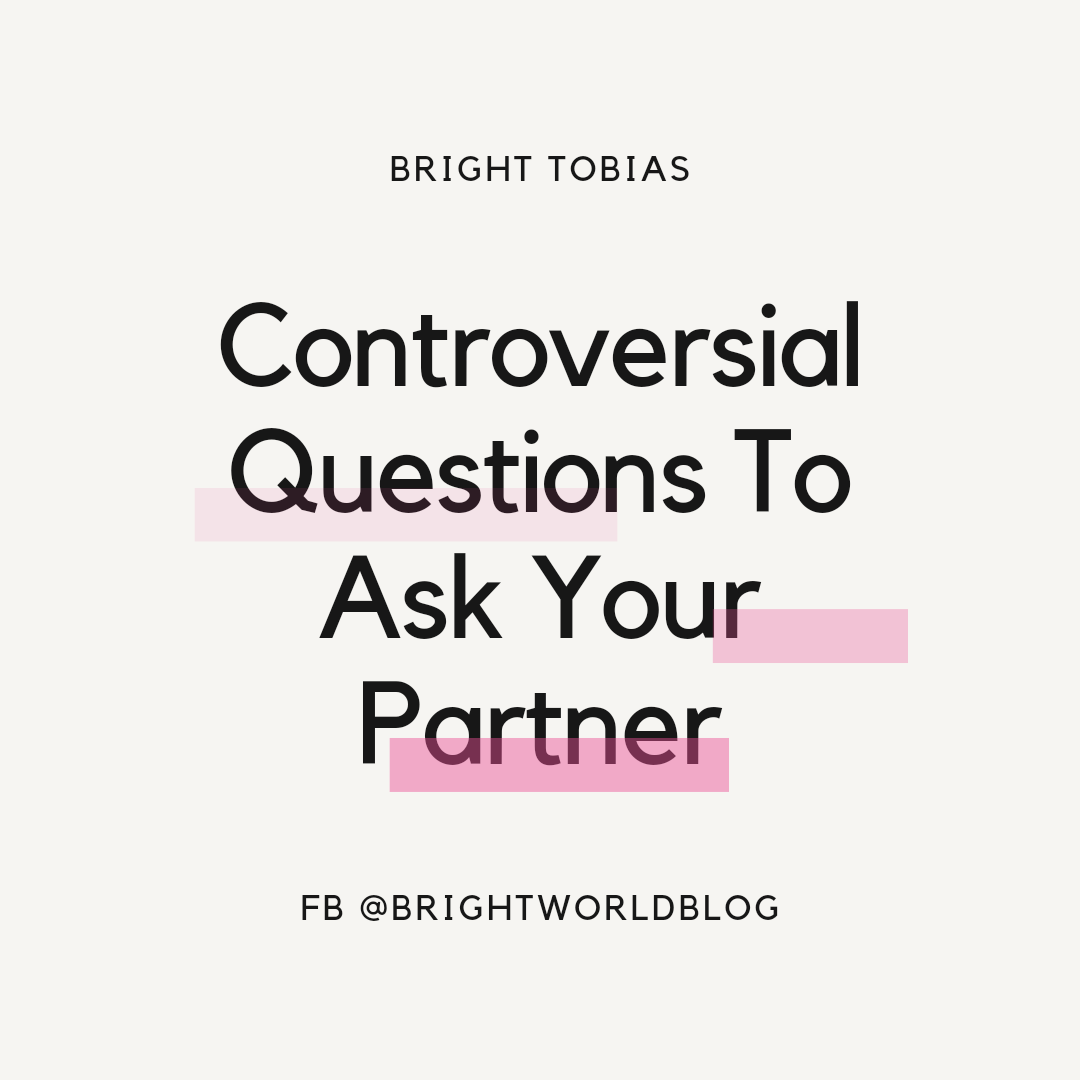
Table of Contents
Exploring Controversial Questions To Ask Your Partner:
Controversial Questions To Ask Your Partner: In every romantic relationship, open and honest communication is key to building trust and understanding between partners. While discussing lighthearted topics can be enjoyable, delving into controversial questions can deepen your connection and foster a greater sense of intimacy. However, it’s crucial to approach these discussions with sensitivity, empathy, and a willingness to listen without judgment. In this article, Bright Tobias will reveal some varieties of controversial questions to ask your partner, along with tips for navigating these conversations with respect and empathy. Stay tune as Bright Tobias unveil them.
Controversial Questions To Ask Your Partner

Politics and Ideologies:
Asking your partner about their political beliefs and ideologies can lead to insightful conversations about values, priorities, and societal issues. However, politics can be a sensitive topic, so approach with care. Questions might include:
What political issues are most important to you, and why?
How do your political beliefs influence your views on social issues?
Have you ever had a change of heart about a political issue? What prompted it?
While asking, always remember that political issues can be sensitive sometimes, so do not take some answers too seriously.
Religious Beliefs and Practices:

Religion can deeply influence a person’s identity and worldview, making it a potentially contentious but valuable topic to discuss. Approach these questions with curiosity and respect for your partner’s beliefs:
What role does religion/spirituality play in your life?
How do your religious beliefs (or lack thereof) shape your values and decision-making?
Are there aspects of your religion that you struggle with or question?
However, just have it in mind that religious issue and beliefs are quite sensitive to the public and also to some people. In some cases, friends can fall into a serious argument thereby leading to enemity due to one’s beliefs of religion and all that.
So you must approach this questions with carefulness and also maturity, knowing too well that sometimes what you believe can be slightly different from what your partner believe, so handle the difference with love, respect and maturity.
Money and Finances:

Conversations about money can be uncomfortable, but they’re essential for financial transparency and shared goals in a relationship. Here are some questions to consider:
How do you feel about saving and spending money?
What are your long-term financial goals, and how do you plan to achieve them?
How would you handle financial disagreements within our relationship?
Can you agree on joint account for your business?
These and more are interesting Controversial Questions To Ask Your Partner on money and finances. However, the last question on the list can be tricky as it’s meant to ascertain one’s intention of “building together” in their marriage. But have it in mind that the answer given isn’t the only way to verify it’s authenticity or to how true it is. You can also verify through other means as most times people are likely to say “NO” as form of joke or say “YES” just to play around. Take charge.
Family Dynamics and Upbringing:

Understanding your partner’s family background and upbringing can provide valuable insights into their values, communication styles, and emotional triggers. Approach these questions with sensitivity:
What was your relationship like with your parents/siblings growing up?
How do you think your upbringing has influenced your approach to relationships?
Are there any family traditions or dynamics that are particularly meaningful to you?
S3x and Int!macy:

Discussing s3x and int!macy can strengthen your emotional bond and enhance your physical connection. However, it’s essential to approach these conversations with sensitivity and respect for boundaries:
What are your s3xual desires and fantasies? How can we explore them together?
How do you feel about experimenting with different s3xual activities or preferences?
Are there any past experiences or traumas that affect your relationship with s3x?
Lastly, you can also trigger the question of whether s3x before marriage or after marriage is the best, just to know their own point of view.
Career and Ambitions:
Understanding each other’s career aspirations and ambitions can help support each other’s goals and dreams. Here are some questions to consider:
What are your long-term career goals, and how can I support you in achieving them?
How do you define success in your professional life?
Are there any career-related sacrifices you’re unwilling to make for the sake of our relationship?
This also help to know the kind of person you are dating or getting in touch with, whether a career minded person, a someone who doesn’t have anything to desire about their life. It’s an important Controversial Questions To Ask Your Partner.
Ethical Dilemmas:

Exploring ethical dilemmas together can reveal shared values and ethical boundaries. Approach these discussions with an open mind and a willingness to engage in thought-provoking dialogue:
How do you navigate moral gray areas or ethical dilemmas in your life?
Are there any moral principles that you would never compromise on?
How do you reconcile conflicting ethical beliefs within yourself or in our relationship?
Future Plans and Goals:

Discussing your future together can strengthen your commitment and alignment as a couple. Here are some questions to explore:
Where do you see yourself in 5, 10, or 20 years? How do you envision our future together?
What are your non-negotiables when it comes to long-term goals and aspirations?
How can we ensure that our individual goals and dreams are aligned with our shared future as a couple?
Tips for Navigating Controversial Conversations:
Approach discussions with empathy, curiosity, and a genuine desire to understand your partner’s perspective.
Practice active listening and avoid interrupting or dismissing your partner’s thoughts and feelings.
Be open to vulnerability and sharing your own experiences and emotions.
Set boundaries and respect your partner’s boundaries during these conversations.
Remember that disagreements are natural and can lead to growth and deeper understanding if approached constructively and more especially, handled with sense of maturity.
Controversial Questions To Ask Your Partner – Conclusion

Engaging in discussions about controversial topics with your partner can foster greater intimacy, understanding, and trust in your relationship. By approaching these conversations with empathy, respect, and a willingness to listen, you can deepen your connection and strengthen your bond as a couple. Remember that communication is a journey, and each conversation is an opportunity for growth and deeper connection with your partner.
Thank you for reading and I wish you the best in your LOVE life.










